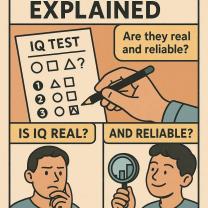What can you do with an Information Technology degree?
An Information Technology (IT) degree opens up a wide range of career opportunities in various industries. With the increasing reliance on technology in today's world, IT professionals are in high demand. Here are some career paths you can pursue with an IT degree:
Network Administrator: Network administrators are responsible for the day-to-day operation of an organization's computer networks. They manage network infrastructure, troubleshoot connectivity issues, and ensure data security.
Systems Administrator: Systems administrators maintain and manage an organization's computer systems. They are responsible for installing and configuring software and hardware, ensuring system security, and providing technical support to users.
Database Administrator: Database administrators design and maintain databases, ensuring data integrity, availability, and security. They work with database management systems (DBMS) to store and retrieve data efficiently.
Cybersecurity Analyst: Cybersecurity analysts protect an organization's computer systems and networks from security threats and breaches. They implement security measures, monitor for vulnerabilities, and respond to security incidents.
Software Developer: Software developers design, develop, and test software applications and systems. They may work on a wide range of projects, from mobile apps to large-scale software solutions.
Web Developer: Web developers create websites and web applications, working on the design, functionality, and user experience of online platforms. They use programming languages like HTML, CSS, and JavaScript.
IT Project Manager: IT project managers oversee and coordinate IT projects from inception to completion. They are responsible for managing budgets, timelines, and teams to ensure projects are successful.
Business Analyst: Business analysts bridge the gap between business needs and IT solutions. They gather and analyze data to identify business problems and propose technology-based solutions.
IT Consultant: IT consultants provide advice and solutions to organizations seeking to improve their IT infrastructure or solve specific technology-related challenges. They often work as independent contractors or for consulting firms.
Cloud Solutions Architect: Cloud solutions architects design and implement cloud-based solutions for businesses, using platforms like Amazon Web Services (AWS), Microsoft Azure, or Google Cloud.
Data Scientist: Data scientists analyze large datasets to extract valuable insights and make data-driven decisions. They use statistical analysis, data mining, and machine learning techniques.
Computer Forensics Investigator: Computer forensics investigators specialize in digital investigations, such as uncovering evidence of cybercrimes, data breaches, or unauthorized access.
Health IT Specialist: Health IT specialists work in the healthcare industry, managing electronic health records (EHR) systems, ensuring compliance with health data regulations, and optimizing IT solutions for healthcare facilities.
Quality Assurance (QA) Analyst: QA analysts test software and applications to identify and report bugs and issues, ensuring that products meet quality and performance standards.
AI/Machine Learning Engineer: AI and machine learning engineers develop and implement artificial intelligence algorithms and machine learning models for various applications, such as natural language processing, computer vision, and predictive analytics.
These are just a few examples of the many career paths you can pursue with an IT degree. The field of information technology is continually evolving, and IT professionals often have opportunities to specialize in areas that align with their interests and career goals. Additionally, obtaining industry-recognized certifications can enhance your qualifications and open doors to specific IT roles.
Career Opportunities with an Information Technology Degree
Information technology (IT) is a broad field that encompasses a wide range of job roles and specializations. IT professionals play a vital role in the development and maintenance of the computer systems and networks that power our world.
Here are some of the most common career opportunities for IT professionals:
- Software developer: Software developers design, create, and test software applications. They work in a variety of industries, including healthcare, finance, and education.
- Web developer: Web developers design, develop, and maintain websites and web applications. They work in a variety of industries, including e-commerce, media, and marketing.
- Database administrator: Database administrators manage and maintain databases. They are responsible for ensuring that databases are secure and accessible to authorized users.
- Network administrator: Network administrators design, install, and maintain computer networks. They are responsible for ensuring that networks are running smoothly and efficiently.
- Information security analyst: Information security analysts develop and implement security measures to protect computer systems and networks from cyberattacks. They work in a variety of industries, including government, finance, and healthcare.
- Systems analyst: Systems analysts work with businesses to understand their needs and develop IT solutions to meet those needs. They work in a variety of industries, including healthcare, finance, and manufacturing.
- IT manager: IT managers oversee the IT department of an organization. They are responsible for planning, budgeting, and managing the IT resources of the organization.
In addition to these general IT roles, there are also many specialized IT roles, such as:
- Data scientist: Data scientists use data to solve complex problems. They work in a variety of industries, including healthcare, finance, and marketing.
- Machine learning engineer: Machine learning engineers build and deploy machine learning models. They work in a variety of industries, including healthcare, finance, and technology.
- Cloud architect: Cloud architects design, develop, and implement cloud computing solutions. They work in a variety of industries, including healthcare, finance, and technology.
- Security engineer: Security engineers design, implement, and maintain security measures to protect computer systems and networks from cyberattacks. They work in a variety of industries, including government, finance, and healthcare.
- DevOps engineer: DevOps engineers work to bridge the gap between development and operations teams. They help to automate tasks and processes to improve the efficiency and quality of software development.
Job Roles and Specializations in Information Technology
The specific IT job roles and specializations that are available to you will depend on your education, experience, and interests. However, with a degree in information technology, you will have a wide range of career options to choose from.
Advantages of Pursuing a Degree in Information Technology
There are many advantages to pursuing a degree in information technology. IT is a growing field with a high demand for skilled workers. IT professionals also earn competitive salaries.
Here are some of the specific advantages of pursuing a degree in information technology:
- High demand for workers: The demand for IT professionals is expected to grow much faster than average in the coming years. This means that there will be plenty of job opportunities for IT graduates.
- Competitive salaries: IT professionals earn competitive salaries. The median annual salary for computer and information technology occupations was $91,250 in May 2021.
- Job security: IT professionals have good job security. The field is constantly evolving, so there is always a demand for IT professionals who are up-to-date on the latest technologies.
- Portability: IT jobs are available in all industries and in all parts of the world. This means that you can be flexible with your career and move to a new location if you want.
- Opportunities for advancement: There are many opportunities for advancement in the IT field. With hard work and dedication, you can move up the ranks and into more senior positions.
If you are interested in a career in information technology, a degree in IT is a great place to start. With a degree in IT, you will have the skills and knowledge you need to succeed in this exciting and growing field.













